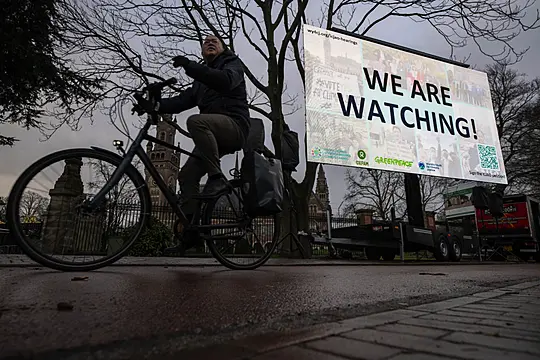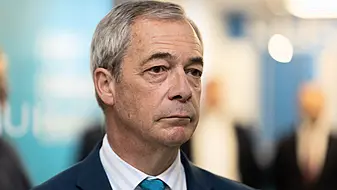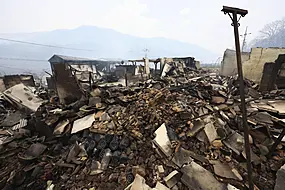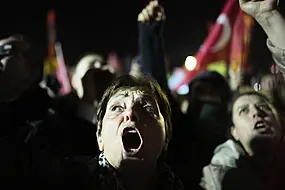The United Nations’ top court has taken up the largest case in its history, hearing the plight of several small island nations helpless in combating the devastating impact of climate change that they feel endangers their survival.
They demand that major polluting nations should be held to account.
After years of lobbying by island nations who fear they could simply disappear under rising sea waters, the UN General Assembly asked the International Court of Justice last year for an opinion on “the obligations of states in respect of climate change”.
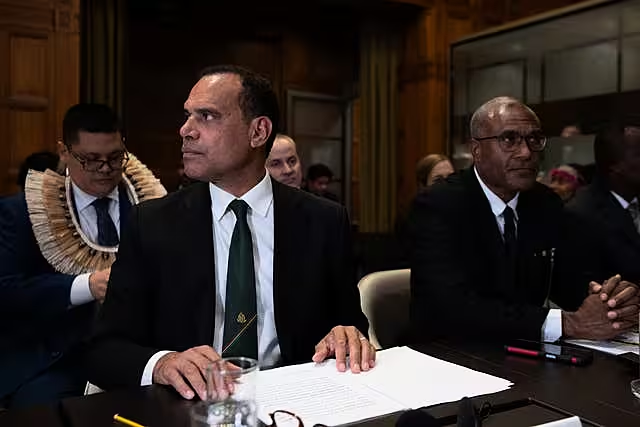
Arnold Kiel Loughman, attorney-general of the Vanuatu archipelago nation, said: “The stakes could not be higher. The survival of my people and so many others is on the line.
“As the principal legal officer of my country, I have come before this court because domestic legal remedies are unable to address a crisis of the scope and magnitude,” he added, during the opening session of two weeks of hearings.
“States have obligations, obligation to act with due diligence, to prevent significant harm to the environment, to prevent, to reduce the emissions and provide support to countries like mine to protect the human rights of present and future generations.”
Any decision by the court would be non-binding advice and could not directly force wealthy nations into action to help struggling countries.
However, it would be more than just a powerful symbol since it could be the basis for other legal actions, including domestic lawsuits.
WATCH LIVE: Vanuatu and the Melanesian Spearhead Group (jointly), South Africa, Albania and Germany open
the public hearings in the advisory proceedings on Obligations of States in respect of Climate Changehttps://t.co/qGazks5diA— CIJ_ICJ (@CIJ_ICJ) December 2, 2024
In the decade up to 2023, sea levels have risen by a global average of around 1.7in, with parts of the Pacific rising higher still. The world has also warmed 1.3C since pre-industrial times because of the burning of fossil fuels.
Vanuatu is one of a group of small states pushing for international legal intervention in the climate crisis.
Vanuatu’s climate change envoy Ralph Regenvanu told the court: “The conduct on trial here is that of states which have failed for over a century despite increasingly dire warnings to rein in the emissions from their territories.
“I must emphasise that since 1990, emissions have increased by over 50%, reaching an all-time high in 2023.”
He added that “a handful of readily identifiable states have produced the vast majority of historic and current greenhouse gas emissions. Yet other countries, including my own, are suffering the brunt of the consequences”.
The Hague-based court will hear from 99 countries and more than a dozen intergovernmental organizations over two weeks. It is the largest line-up in the institution’s nearly 80-year history.
Last month at the United Nations’ annual climate meeting, countries cobbled together an agreement on how rich countries can support poor countries in the face of climate disasters.

Wealthy countries have agreed to pool together at least 300 billion dollars (£235 billion) a year by 2035, but the total is short of the 1.3 trillion dollars (£1.02 trillion) that experts and threatened nations say is needed.
Vishal Prasad, of Pacific Islands Students Fighting Climate Change, said: “For our generation and for the Pacific Islands, the climate crisis is an existential threat.
“It is a matter of survival, and the world’s biggest economies are not taking this crisis seriously. We need the ICJ to protect the rights of people at the front lines.”
Fifteen judges from around the world will seek to answer two questions: What are countries obliged to do under international law to protect the climate and environment from human-caused greenhouse gas emissions? And what are the legal consequences for governments where their acts, or lack of action, have significantly harmed the climate and environment?
The second question makes particular reference to “small island developing states” likely to be hardest hit by climate change and to “members of “the present and future generations affected by the adverse effects of climate change”.
The judges were even briefed on the science behind rising global temperatures by the UN’s climate change body, the Intergovernmental Panel on Climate Change, ahead of the hearings.
